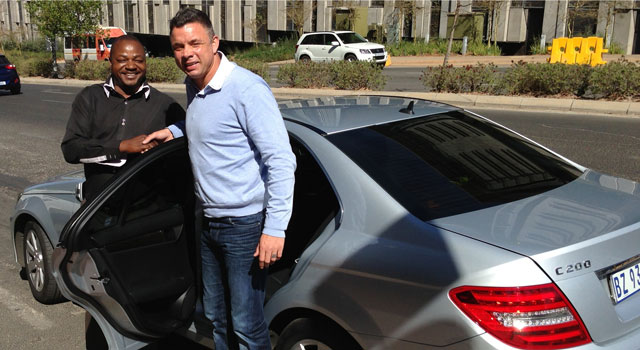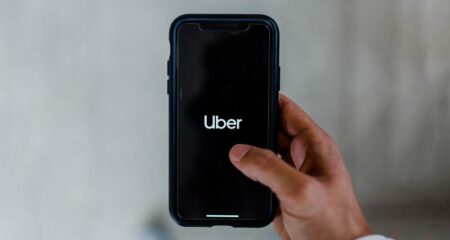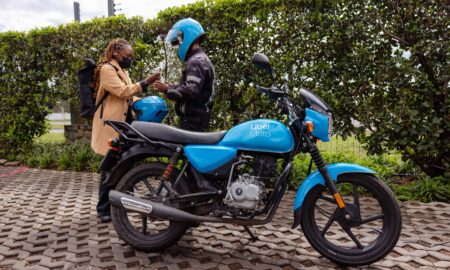
US-based on-demand private driver service Uber has begun offering its services in Johannesburg and plans to begin operations in Cape Town soon. The company began listing Johannesburg drivers on Wednesday this week.
Uber connects drivers of luxury cars with consumers using a smartphone application. Users and drivers can rate one another using the built-in rating mechanism, and those drivers that receive repeatedly poor reviews will be removed from the service. Similarly, badly behaved commuters can be barred if necessary.
Jambu Palaniappan, Uber’s head of Middle East, Africa, and India expansion, says users of the app began seeing cars available in Johannesburg on Wednesday. He says the same app can be used in any of the countries in which Uber operates and, while he won’t commit to a timeline, he says Cape Town residents can expect to start seeing available cars in their neighbourhoods soon.
Users of the app input their credit card details during sign-up so that there is no need for commuters to carry cash. The app indicates cars in the vicinity of the commuter and allows them to request a pick-up. The user can liaise with the driver directly from the app and a receipt for the journey is automatically sent to their mobile phone or e-mail address when a ride is concluded.
Palaniappan tells TechCentral that Uber looks at each city in which it is launched separately. “We find cities are unique and we hire local folk who know the local market while still reflecting the Uber brand’s ideals.”
Uber is in the process of setting up a small local team,” according to Palaniappan, who adds that the company plans to expand its offering to other African cities.
“We want to be everywhere. We haven’t made the list of the cities we’re planning to launch in public, but we have ambitions to be everywhere on the continent,” he says.
Uber decided to launch in South Africa, and specifically in Johannesburg, because of the “opportunity” it presents.
“Johannesburg offers a great opportunity because there’s a strong driving culture and a lack of alternative transport. We think we can really add value here.”
Uber vets each driver, who must be licensed as a private taxi and have insurance, before adding them to the system. He says the number of cars in Johannesburg is limited during the testing phase, but that the number will grow daily.
“Drivers are rated on five-star scale by customers, so we very quickly get a sense of driver quality and only keep high-rated drivers on the system,” he explains.
Pricing is based on a time and distance model. “Johannesburg in particular has disproportionate transport costs,” Palaniappan says. “We want to make that more uniform and transparent.”
The minimum fare is R85, with users billed R3,90/minute when travelling slower than 36km/h or R10,90/km when traveling faster than that. Some routes have flat fees — for example, a trip from Sandton to the OR Tambo International airport costs R550.
The mobile app is available for Apple and Android devices. — (c) 2013 NewsCentral Media




